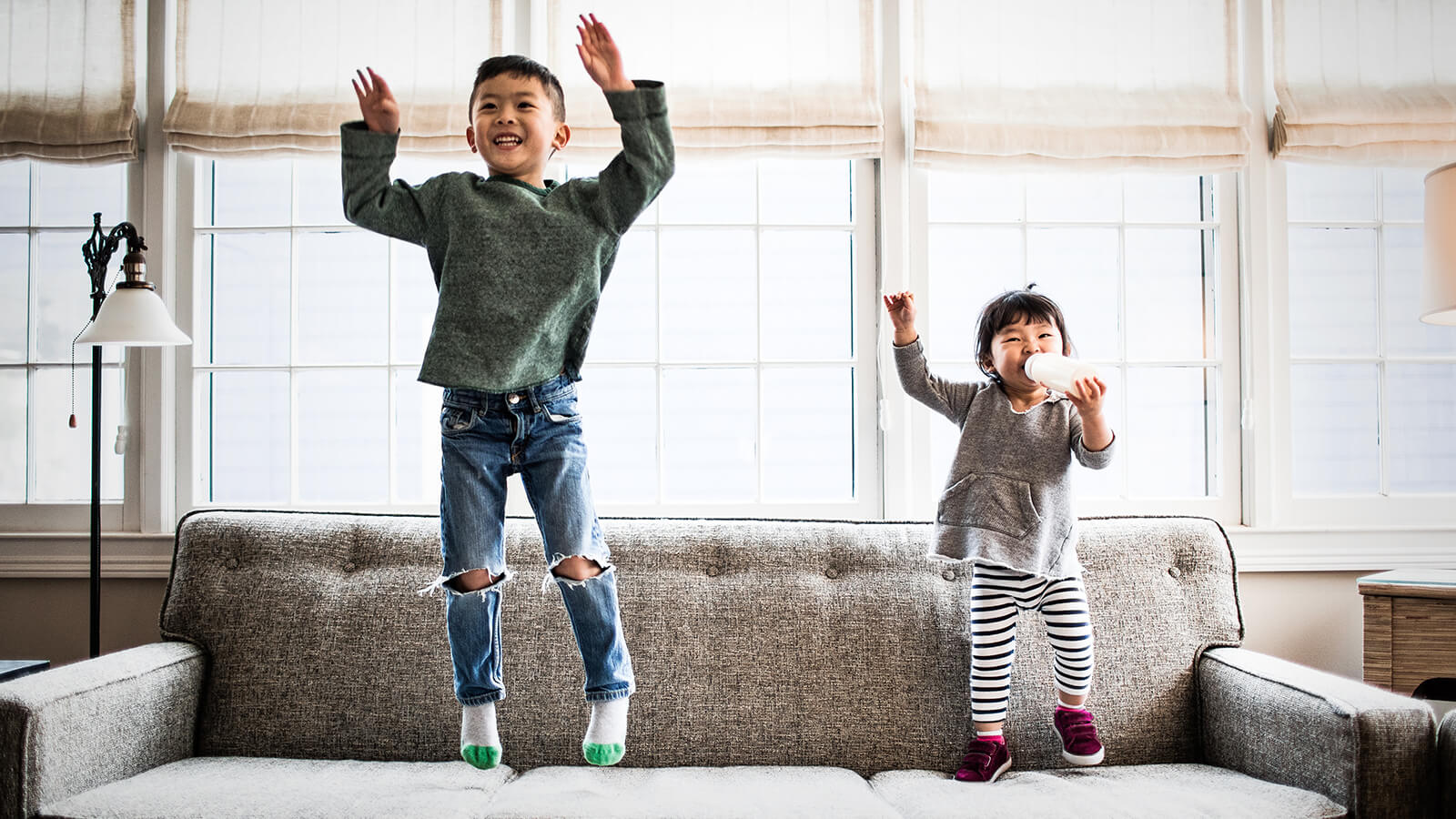
As the country moves through the different phases of Covid-19, many families - and therefore siblings - are adjusting to spending more time together. Jenny Hale, a Senior Family Coach at the Parenting Place, provides three ways of promoting a sense of team and cooperation between siblings.
Well done. Everyone in the family is getting fed, washed and watered – for the most part! You’ve no doubt worked through some adjustments to find a daily rhythm and hopefully also experienced some great moments in the midst of an extraordinary time.
It’s understandable that this far in there may be a few wobbles appearing, some of which boil down to spending much more time together than usual – and in a confined space. Add to the mix our own background noise reminding us of the extra things there are to worry about in this season… It’s no surprise that right now you may be seeing more friction and less tolerance amongst your children. Maybe you hear the volume going up and the pitch morphing into the tell-tale tones of intolerance. Perhaps the meltdowns and fights have less space between them. Some of this might sound very familiar to you right now:
- “You broke my Lego castle. I’m going to break your farm”
- “Mum, tell Sienna to stop breathing so loudly – I can’t concentrate!”
- “She’s not giving me a turn – she always leaves me last!”
- “He’s eaten the last biscuit. I only got two out of the whole packet!”
- “My felts are ruined – all the tips are flattened. I hate Sam – he did it on purpose!”
What is a parent to do in the midst of these sibling tensions?
There is a normal side to your children having disagreements, being too bossy, snatching and hoarding, sulking and getting moody. Relationships mean there will be conflict. The good news is that children can learn – little by little – to get on, to give and take, to be generous and kind and to forgive. Bear in mind that this sort of learning journey is a long road, so being patient as you go really helps. Here are three things you can do along the way to forge great connections and a sense of team and cooperation.
The Marble Jar
Start with an empty jar and as a family team, work out two or three things that would be good to focus on. It helps if you write them on the jar. It could be that your family wants to work on kind words, great sharing, playing fairly, patient waiting or lovely manners.
When any of these are noticed, a parent puts a marble (a pebble from the driveway would do) in the jar. A child might mention a sibling’s marble-worthy efforts too. When the jar is full, it’s time for a wonderful team celebration. In lockdown this may look like a candlelit dinner followed by Magnums, an afternoon of favourite family games, baking (and eating!) a cake together or a movie and popcorn night. The key is that everyone gets to participate and share in the celebration.
A bit of space for everyone
Your home or flat may be small so getting creative when it comes to personal space will help. At some point each day, everyone needs a little bit of time and space on their own. The options could be lying on your bed, under a hut in the lounge, outside under a tree or on the trampoline. This is a necessary and very helpful part of your daily rhythm. At first it may not be appealing to everyone concerned, but persevere as it will provide a much-needed break and a time to recharge. This is a great moment to be screen-free and lean on some good old fashioned books for a change in pace and activity.
Making requests – learning to ask respectfully
This one takes a bit of practise so keep in mind that you are playing the long game – you’re setting your children up with valuable life-skills, including assertiveness, respectfulness and the art of negotiation. These communication skills will serve them well in all of their relationships.
Children will often fall into the habit of moaning about an injustice or taking a bossy stance to get what they want. Help your children work out what it is they would like and how they can phrase their request more constructively and respectfully. So, instead of a child saying to a sibling “Get out of my room, you idiot!”, you help them work out what it is they want. This statement could be rephrased more respectfully as: “I would like you to leave my room so I can be on my own.”
Keep it simple by reminding your child that ‘I would like’ statements are a helpful starting point for respectful communication. “I would like…. you to share your felts, give me back my Lego, look at my Lego but not touch it …”
Relationships are important and learning how to get on with each other and give and take is a worthy journey. Having your children like and love one another – now, and as adults – is not an impossible dream. It will just take time, patience and some humour along the way.
Parenting Place is the charity with a heart for New Zealand Families. They're here to walk alongside you and your whānau from the moment your little one is born, until the time they raise tamariki of their own. Whether you have a newborn, a teenager, a troupe of grandkids, or nieces and nephews, Parenting Place have a range of programmes, courses, camps and resources, tailored for you and your whānau. www.parentingplace.nz